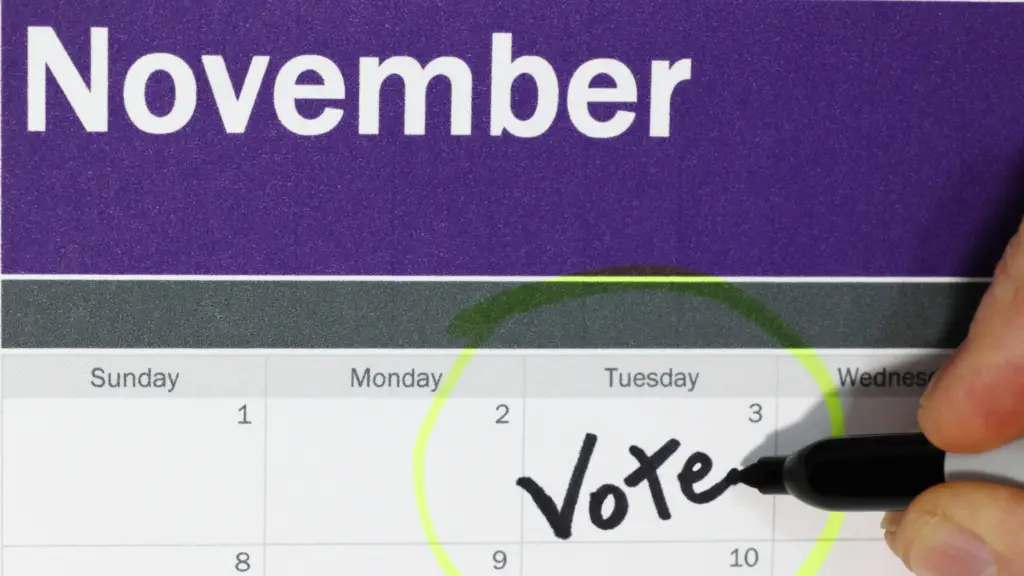
Tuesdays in November seem like a strange time to hold national elections. So why do we do it?
Originally, election days fell on a Tuesday in November to accommodate farmers. Tuesdays were chosen as it often took a day to travel to polling places; many needed Monday to travel after spending Sundays in church. November was chosen as it was after the harvest but before the onset of winter.
This system was formalized in 1845 when Congress passed the Presidential Election Day Act to solidify the Tuesday after the first Monday in November as the national election day. Prior to that Act of Congress, states had been able to set their own voting dates within 34 days of the first Wednesday in December.
However, many began raising concerns that the outcomes of elections in states that voted earlier impacted the voting outcomes in states that voted later in the month. Congress then consolidated voting periods to one day in November. In addition to the reasons given above, Tuesday was also chosen because Wednesdays were market days and it allowed farmers enough time to return home to prepare for the markets.
Non-Presidential Elections
Many other elections are also held on the Tuesday following the first Monday in November as a manner of convenience and cost-saving. However, some states, territories, and localities have elections on odd-numbered years (or “off years”) and may set different dates for those elections.
Time to Reschedule Elections?
Some have argued that keeping elections set for a Tuesday in November is arbitrary at this point given modern transportation and the relative ease at which most Americans can vote.
Further, the timing is actually inconvenient in the modern era and might be lowering voter turnout because many have work and/or family-life responsibilities in the middle of the week. In fact, most democracies around the world hold elections on a weekend to avoid this very issue.
Some proposals to deal with this problem include changing the date of elections, making the election day a holiday so that no one is required to work during polling hours, and allowing voters to cast ballots online.
Each proposal has been debated quite vociferously in recent decades and one can find opinions both for and against each of these options. Casting ballots online, however, seems to be the worst of the options as it would make elections highly vulnerable to cyber-attacks.
Some argue that making election day a holiday would not necessarily fix voter turnout issues because some sectors such as the health care industry don’t take holidays. It may also incentivize commercialization of Election Day (e.g. with the creation of things like Election Day sales). It may also be harmful to low-income households who may need the day’s wages and who may not get time off for part-time jobs.
Out of the options presented above, weekend voting appears to have the least resistance from politicians, political scientists, and those interested in increasing voter turnout.
